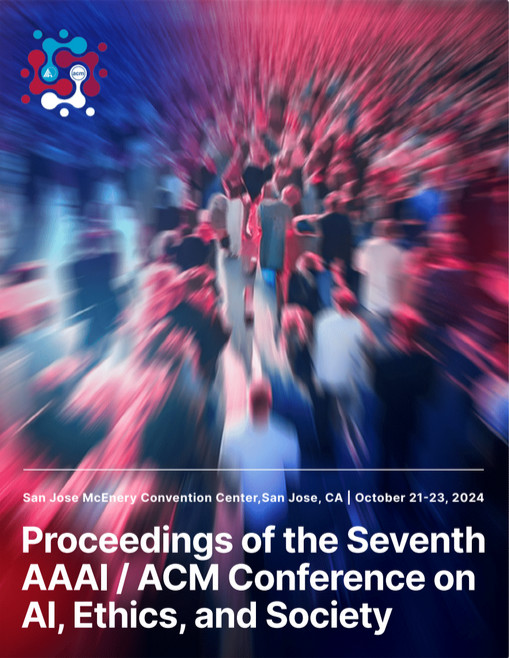What’s Your Stake in Sustainability of AI?: An Informed Insider’s Guide
DOI:
https://doi.org/10.1609/aies.v7i1.31675Abstract
It's no secret that AI systems come with a significant environmental cost. This raises the question: What are the roles and responsibilities of computing professionals regarding the sustainability of AI? Informed by a year-long informal literature review on the subject, we employ stakeholder identification, analysis, and mapping to highlight the complex and interconnected roles that five major stakeholder groups (industry, practitioners, regulatory, advocacy, and the general public) play in the sustainability of AI. Swapping the traditional final step of stakeholder methods (stakeholder engagement) for entanglement, we demonstrate the inherent entwinement of choices made with regard to the development and maintenance of AI systems and the people who impact (or are impacted by) these choices. This entanglement should be understood as a system of human and non-human agents, with the implications of each choice ricocheting into the use of natural resources and climate implications. We argue that computing professionals (AI-focused or not) may belong to multiple stakeholder groups, and that we all have multiple roles to play in the sustainability of AI. Further, we argue that the nature of regulation in this domain will look unlike others in environmental preservation (e.g., legislation around water contaminants). As a result, we call for ongoing, flexible bodies and policies to move towards the regulation of AI from a sustainability angle, as well as suggest ways in which individual computing professionals can contribute to fighting the environmental and climate effects of AI.Downloads
Published
2024-10-16
How to Cite
Kim, G. C., Rothschild, A., DiSalvo, C., & DiSalvo, B. (2024). What’s Your Stake in Sustainability of AI?: An Informed Insider’s Guide. Proceedings of the AAAI/ACM Conference on AI, Ethics, and Society, 7(1), 738-750. https://doi.org/10.1609/aies.v7i1.31675
Issue
Section
Full Archival Papers

